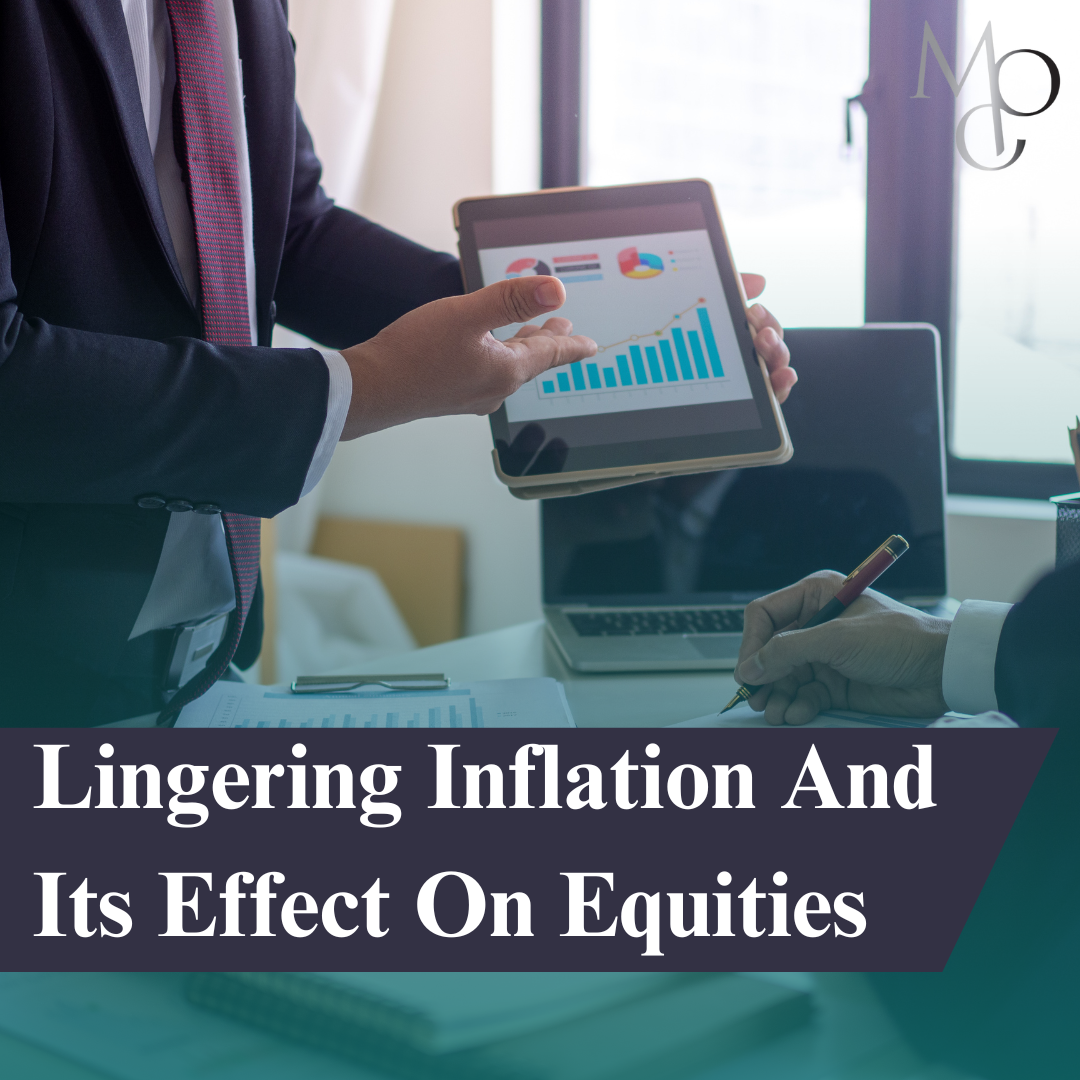
How has inflation effected Equities?
Earlier this month, the Office of National Statistics (ONS) reported that UK headline inflation held steady in January at 4.0%. Whilst this undershot estimates slightly, the UK continues to lag its peers on the continent and in the US in the battle to bring inflation back down to more manageable levels. By comparison, January inflation across the Eurozone and in the US was 2.8% and 3.1% respectively.
Wage growth has arguably proved to be the biggest obstacle for the Bank of England in reigning in price growth over the last two years. Whilst steady and consistent wage growth is positive for the economy in times of more manageable inflation, excessive increases, as high as the 8.5% seen in July of 2023, can cause prices to spiral as companies pass on higher labour costs to consumers. This leads to workers demanding higher wages to keep up with price rises and so the cycle continues.
Rent has been amongst the largest contributors to price pressure in recent times, with inflation in private rentals increasing at an annual rate of 6.2% in January. This can be attributed to a number of factors, including the undersupply issue that has long plagued the UK housing market. Current and previous governments have been criticised for failing to build enough homes to meet demand, whilst also selling off social housing to the private sector, both of which have resulted in upward pressure on rental prices. The increase in borrowing costs in the last two years has caused further headwinds for renters, as higher mortgage rates have caused first-time buyers to retreat back into the rental market.
One more recent threat to the reduction in inflation has been the unrest seen in the Middle East over recent months. Since late 2023, Iranian-backed Houthi rebels have repeatedly targeted ships in the Red Sea and surrounding waters in response to Israel’s military action in the Gaza Strip. This has forced many vessels that transport goods between Asia, the Middle East and Europe to abandon the faster shipping route via the Suez Canal and reroute around the southern tip of Africa, increasing transportation costs and slowing down global supply chains. If unrest in the region persists, it may prove to be another headwind for the UK and other nations in bringing down inflation.
Lingering inflation can have many knock-on effects on different areas of the economy, as well as financial markets. As we have seen across many economies, central banks have been forced to sharply increase interest rates in an attempt to control spending and smother high inflation. However, reducing consumer spending in turn reduces corporate revenues, putting pressure on earnings which can drag down equity prices. Higher interest rates also mean investors discount future cashflows of companies to present value at a high rate. This results in a drop in equity prices, particularly for the longer-duration, growthier segments of the market that investors assign significant future growth in earnings to. Higher interest rates also means higher cost of capital for businesses, forcing management teams to rethink investment decisions due to the implied lower return, hampering growth.
Another force working against equity prices amidst periods of high inflation and high interest rates is the relative attractiveness of the bond market. With the Bank of England base rate above 5%, investors are adequately rewarded for holding government bonds, which are a highly liquid, risk-free asset. This can be particularly appealing to a large section of the investment community, especially in times of equity market volatility. Corporate bonds can also offer a degree of refuge to investors and pay a higher yield than government bonds, albeit in return for taking on greater risk. In short, the revitalisation of the bond market as a result of the increased cost of borrowing has attracted inflows of capital to the asset class, some of which has rotated out of equities, putting pressure on share prices.
As has been well documented in the UK, the higher rate of inflation has been a key contributor to the cost-of-living crisis. According to a study by AKG, just under half of financial advisers noted that clients are withdrawing more funds from their investments to cover essential bills and plug the immediate gap in income shortfalls. Again, these outflows from capital markets, a large portion of which comprise equities, remove demand from the market and cause headwinds for valuations.
However, comments this week from Andrew Bailey, the Governor of the Bank of England, suggested that cuts are on the horizon as the bank does not necessarily need to wait until inflation falls back to its 2% target. Whilst they will likely be marginal to begin with in order to avoid heightened volatility, investors will hope it signals the beginning of an increasingly supportive environment for equity prices going forward.

